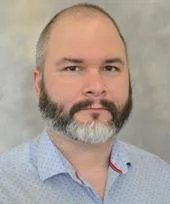Please note: this event has passed
In this CRESTEM seminar, Dr Shawn Bullock shares some of the results of a three-year inquiry into the nature and potential of what he defines as "maker pedagogy". Dr Bullock says:
Some of the most common things I hear from people who are interested in my work on making and maker pedagogy are: “I’m a maker too!” or “I do [insert name of thing or process here], does that count?” I am, of course, always happy to learn that someone finds resonance with my work but I have always been uncomfortable with how enthusiastically making and the maker movement has been taken up in certain educational circles—particularly if elements of the maker movement are functioning as gatekeepers.
In this presentation I will share some of the results of a three-year inquiry into the nature and potential of what I define as "maker pedagogy." I will begin with my initial assumptions about how making might inform approaches to learning—drawn from the history of art and the history of technology—before sharing some surprising findings from my work with primary trainee teachers who were interested in exploring making in their developing practices. I will then focus on the knowledge and practices developed in tandem with my research collaborator around researching maker pedagogy. Finally, I will share some of the reasons that I felt it necessary to step away from thinking about making and education for a few years, and what my hopes are for re-engaging with this work.
The presentation will be online in Microsoft Teams. Please email Dr Richard Brock for the link to the event.

About the speaker
Dr Shawn Michael Bullock is a Reader in the History of Science, Technology, and Education at the University of Cambridge. Prior to coming to the UK, he was Associate Dean and Associate Professor at Simon Fraser University in British Columbia, Canada, where he focused on developing an understanding of how trainee teachers learn to teach. His current research interests focus primarily on the history of education.
